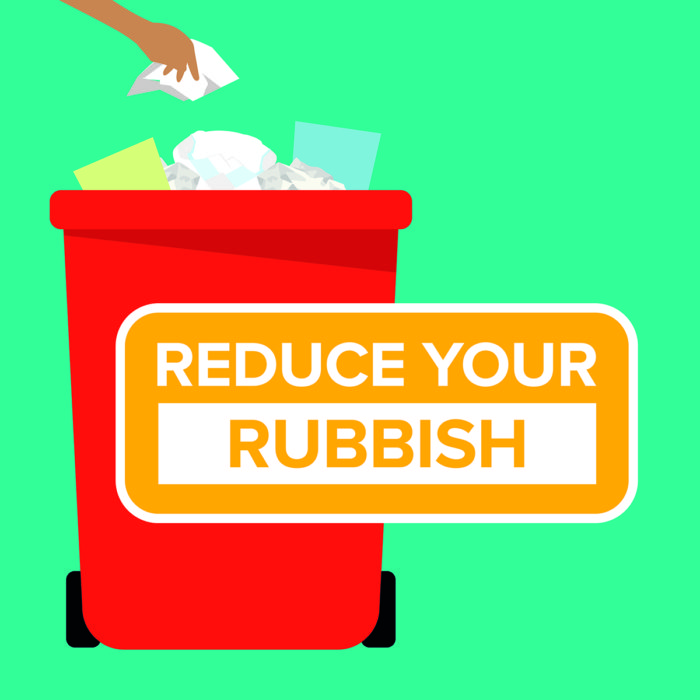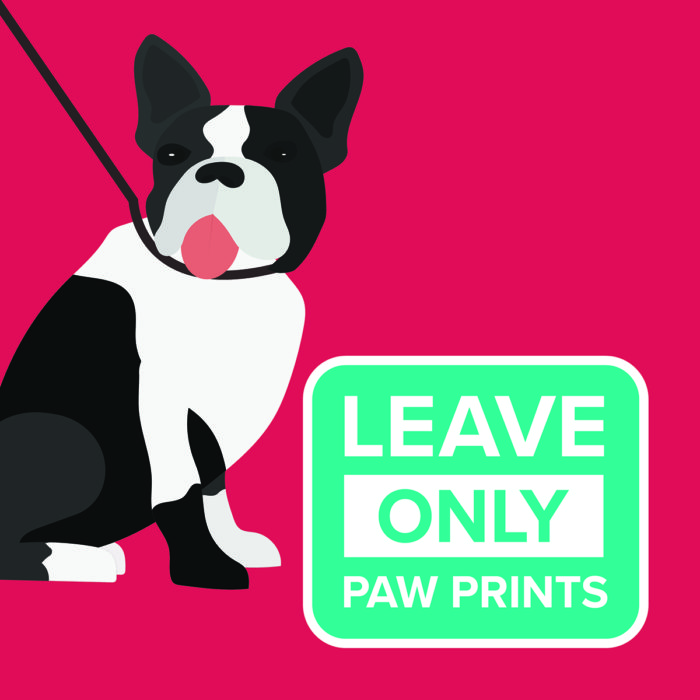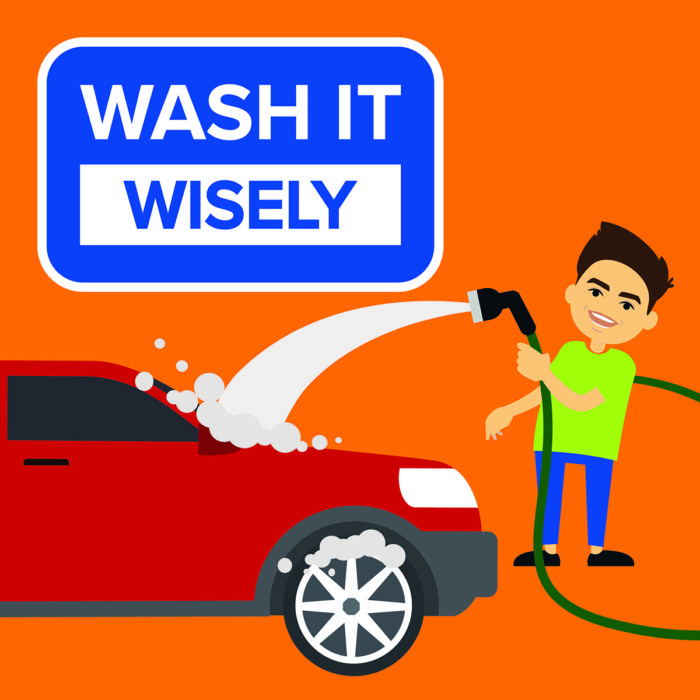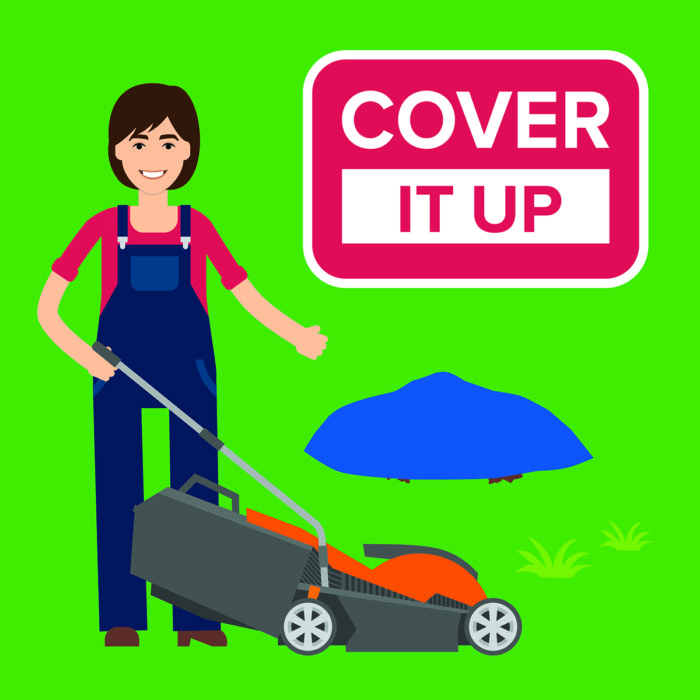Love Your Waterways
We all have a role to play in protecting our waterways!
Everything we do in and around our homes, backyards, parks, schools, workplaces and public spaces affects the quality of water that runs off our streets, goes into the stormwater drains and ends up in our local waterways.
Your nearest waterway could be a stream, creek, river, bay, beach, harbour or even the ocean!
Even if you can’t see your nearest waterway from where you live or work, what you do with your litter, household rubbish and other waste can affect the water quality, making it unhealthy for people and marine life.
Love Your Waterways is a community campaign that encourages people to take up five simple actions to reduce litter, pet waste, gardening materials, chemicals and other pollutants from entering our waterways:
- Reduce your rubbish – Dispose of your litter correctly and swap single-use plastics for reusable products.
- Leave only paw prints – Pick up pet waste to stop bacteria and other bugs from entering our waterways.
- Wash it wisely – Wash your car and household equipment the right way to prevent cleaning products from affecting water quality and marine life.
- Cover it up – Keep dirt, leaves and other garden waste away from stormwater drains and cover them up so they don’t wash away when it rains.
- Keep it clear – Rain water is the only thing that should go down a stormwater drain.
Whether it’s picking up after your dog, washing your car or other household equipment, gardening or just putting your rubbish in the bin, there’s something we can all do to help reduce pollution in our local waterways and make them clean and safe for everyone to enjoy!
Download our campaign assets here:
Read on for more information on each of the ‘Love Your Waterways’ actions as well as some handy hints you can use to help make them easier to do!
Reduce your rubbish
Dispose of your litter correctly and swap single-use plastics for reusable products.
- When you’re out, place all litter in the bins provided or bring it home with you if they’re full.
- Place wet wipes, nappies, tissues, ear buds and other hygiene products in a bin and never flush them down the toilet.
- Separate your rubbish at home correctly so more waste is recycled.
- Reduce your use of single-use plastics by choosing reusable food containers and cloth shopping bags.
Did you know: litter that is not disposed of correctly blocks pipes, pollutes our waterways and kills marine life.
Leave only paw prints
Pick up pet waste to stop bacteria and other bugs from entering our waterways.
- Carry pet waste bags when walking your dog or use bag dispensers at local parks.
- Place bagged pet waste in a bin or take it home with you if bins are full.
Did you know: let waste contains harmful bacteria and parasites that spread diseases and cause serious illness in humans.
Wash it wisely
Wash your car and household equipment the right way to prevent cleaning products from affecting water quality and marine life.
- Where possible, wash your car, BBQ, outdoor furniture, and gardening equipment on the grass so that it soaks up the detergent, dirt and water.
- Or use a commercial car wash or apartment washing bay that filters the water.
- Clean paint brushes and other tools away from drains.
- Use a low-phosphorus detergent.
Did you know: some cleaning products contain toxic chemicals and microplastics that can build up in marine organisms, harming them and the animals that feed on them, including us.
Cover it up
Keep dirt, leaves and other garden waste away from stormwater drains.
- Sweep or blow leaves and dirt from driveways and curbs back onto garden beds or place into a bin.
- Use a catcher when you mow the lawn.
- Cover piles of dirt or mulch to stop it blowing or washing away.
- Never dump garden waste into drains, creeks or bushland.
Did you know: grass clippings and garden waste that ends up in our waterways contributes to algal growth, depriving marine life of oxygen.
Keep it clear
Rain water is the only thing that should go down a stormwater drain.
- Never pour, hose or wash paint, oil and other chemicals down a stormwater drain.
- Store chemicals and pesticides safely in closed, labelled containers and drop off unused ones to your local council’s community recycling centre.
- Avoid using pesticide and fertiliser before it rains.
- Sweep or pick up any litter, building and garden waste so it doesn’t get blown or washed into the drain.
- Report pollution incidents to your local council or the EPA’s 24/7 Environment Line on 131 555.
- If you spot a leak in a public place call Sydney Water on 13 20 92.
Did you know: liquids and small particles that enter stormwater drains travel directly into creeks and rivers, which negatively impacts water quality.
Stormwater vs wastewater (and other technical stuff)
What is a catchment?
![]() The street and neighbourhood where you live is part of a ‘catchment’ – an area where water is collected by the natural landscape. Even if you can’t see your nearest waterway from where you live or work, what you do with your litter, household rubbish and other waste can affect the water quality in our creeks, rivers, bays, beaches and harbours.
The street and neighbourhood where you live is part of a ‘catchment’ – an area where water is collected by the natural landscape. Even if you can’t see your nearest waterway from where you live or work, what you do with your litter, household rubbish and other waste can affect the water quality in our creeks, rivers, bays, beaches and harbours.
What is stormwater?
![]() Every drop of rain that falls on our streets and doesn’t soak into the ground, ends up in the gutter as stormwater. It then runs through an underground system of pipes and eventually flows directly into the nearest waterway, untreated. As it runs over roofs, paths and gutters it picks up and carries with it any pollutants it comes into contact with. The faster water moves on hard surfaces, the more particles it can pick up along the way. Fast moving water can also be a cause of erosion, flooding and poor water quality.
Every drop of rain that falls on our streets and doesn’t soak into the ground, ends up in the gutter as stormwater. It then runs through an underground system of pipes and eventually flows directly into the nearest waterway, untreated. As it runs over roofs, paths and gutters it picks up and carries with it any pollutants it comes into contact with. The faster water moves on hard surfaces, the more particles it can pick up along the way. Fast moving water can also be a cause of erosion, flooding and poor water quality.
What is wastewater?
![]() Wastewater is the used water that goes down sinks, toilets and drains. This water is taken to a wastewater treatment plant and does not go directly to the river system. However, if the pipes that carry this water become blocked, cracked or damaged, they can cause an overflow of sewage into our homes, yards and rivers. Stormwater plumbed into sewerage systems can also cause sewage overflows.
Wastewater is the used water that goes down sinks, toilets and drains. This water is taken to a wastewater treatment plant and does not go directly to the river system. However, if the pipes that carry this water become blocked, cracked or damaged, they can cause an overflow of sewage into our homes, yards and rivers. Stormwater plumbed into sewerage systems can also cause sewage overflows.
What sort of things pollute the river?
- Fertilisers and chemicals
- Pet waste
- Detergents, oils and paints
- Fine particles you can’t always see like microplastics
- Garden waste like grass, mulch and soil
- Rubbish and litter
- Sediment run-off from building sites and renovation projects
- Untreated sewage overflow when there are blocked pipes.
What happens when a river is polluted?
![]() Water that is polluted can be unsafe for people to swim, fish or take part in other recreational activities. It can also harm the marine life that lives in our waterways.
Water that is polluted can be unsafe for people to swim, fish or take part in other recreational activities. It can also harm the marine life that lives in our waterways.






